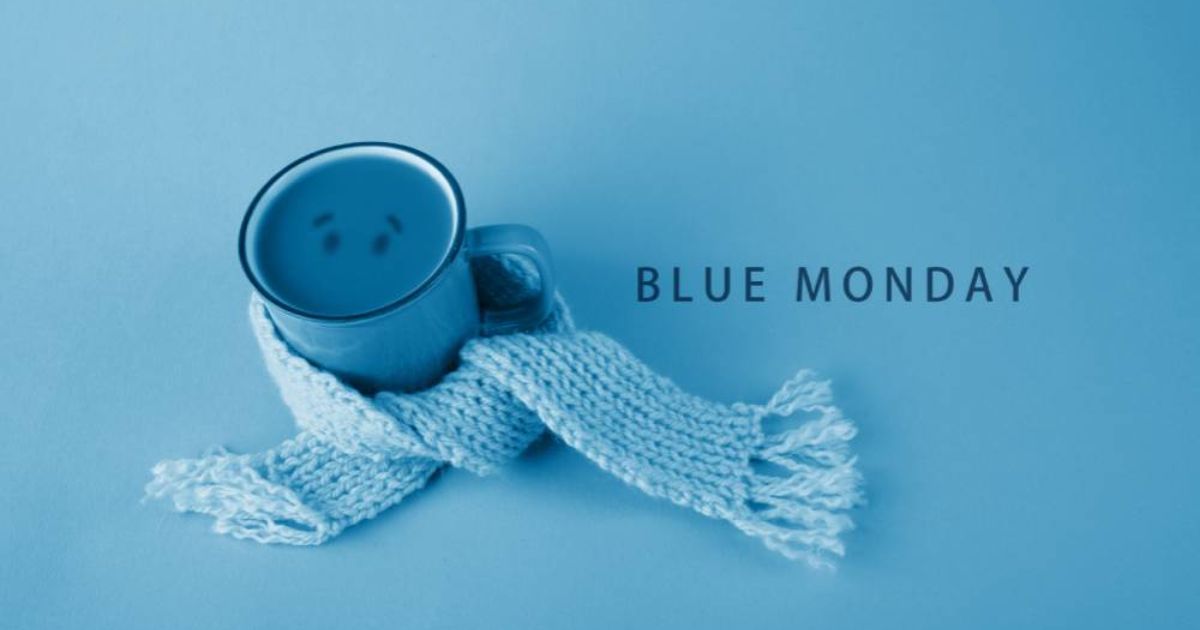In the domain of mental health, the third Monday in January has long been given the unflattering nickname ‘Blue Monday’, as it is supposed to be the most depressing day of the year.
Coined through a 2005 travel company campaign and popularized by a psychologist’s formula that included holiday letdowns and failed New Year’s resolutions, it remains doubtful that this formula applies to all.
Although some experts argue about its universality, they admit that certain people might have heightened emotions at this time.
Blue Monday and Seasonal Affective Disorder (SAD)
Dr. Douglas Misquitta, a psychiatrist from Ohio State University Wexner Medical Center, suggests that depression is indeed a concern for many; hence there may be some truth behind the theory.
In line with Seasonal Affective Disorder (SAD), Blue Monday is usually associated with depression that occurs only during particular seasons such as fall or winter.
The hypothesis also asserts that reduced daylight and shorter days bring about chemical changes in individuals’ brains resulting in depressive symptoms.
Skepticism and Truth
Dr. Misquitta acknowledges that there is some truth in the idea of Blue Monday if seen in a larger seasonal perspective.
He suggests that a consideration of the wider seasonal context may unlock its validity, even as most mental health practitioners globally doubt its general applicability.
Instead, depression can become chronic and last for more than a day or even weeks indicating how complex and different each person’s mental health experiences are at this time.
Impact of Seasonal Affective Disorder
The Cleveland Clinic, informed us that Seasonal Affective Disorder (SAD) is a collection of symptoms ranging from mild winter blues to more obvious forms of seasonal depression.
According to the figures, about 5% of adult population go through the more severe side of seasonal depression.
Meanwhile, anywhere between 10 and 20 percent of the rest experience lower grades resulting in winter blues every year.
This diversity highlights the various ways in which people are impacted by SAD and stresses the importance of personalized approaches that cater for a range of experiences within this seasonal framework.
Testimonials and Coping Mechanisms
For instance, central Ohio residents talk about how Blue Monday has affected them as they mention factors such as light deprivation or overcast skies as reasons for their plight.
In this connection Sarah Albertson laments on the difficulty of finding energy in such an environment; albeit Wilvur Reed acknowledges the hardships but says that people must survive in winter.
Expert Advice on Coping
According to Dr. Misquitta, it is important that patients with seasonal depression get help instead of suffering alone.
He suggests a proactive approach insisting on the importance of acknowledging and identifying the condition, especially when it begins affecting such daily activities as personal hygiene and social interactions.
For one thing, Dr. Misquitta advises that there should be a definite timetable like waking up at the same time every day for someone who is managing SAD.
Equally important is engaging in activities like walking dogs and having certain regular routines such as morning baths which may be therapeutic in helping alleviate the consequences of Blue Monday.
These personalized strategies are aimed at establishing an ordered and constructive atmosphere, which stimulates general well-being during difficult times of the year.
Prevalence and Acknowledgment
As 5% of adults are faced with seasonal affective disorder (Cleveland Clinic), a significant proportion of individuals find themselves grappling with this condition every year.
It is important for people to know that seeking help is a valid step towards managing their mental health during this period.
In conclusion, while Blue Monday remains a contested idea, it can trigger discussions about the real problem of seasonal affective disorder.
It is important to admit the psychological difficulties linked to this period and seek assistance either through friends or professionals leading us towards better mental health practices.
In addition, individuals should consider their mental well-being as winter sets in and promptly address any signs of seasonal affective disorder.



